“See here, I want you to come to Random House and lose some money for us with literary books,” the press’s president and publisher, Harold Evans, told Daniel Menaker, then fiction editor of The New Yorker, in 1995. “You have five years to fook oop.”
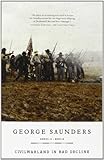
 In his memoir, My Mistake, Menaker recounts this scene and his subsequent transition from magazine to book publishing. Blessed with this permissive mandate, Menaker naturally chose a book of short stories for his first buy. He ran the project, George Saunders’s CivilWarLand in Bad Decline, by his boss, Ann Godoff, who told him:
In his memoir, My Mistake, Menaker recounts this scene and his subsequent transition from magazine to book publishing. Blessed with this permissive mandate, Menaker naturally chose a book of short stories for his first buy. He ran the project, George Saunders’s CivilWarLand in Bad Decline, by his boss, Ann Godoff, who told him:
“Well, do a P-and-L for it and we’ll see.”
“What’s a P-and-L?”
“Profit-and-loss statement.”
“_____”
“You don’t know how?”
“No. Sorry.”
The dialog continues for pages, Godoff guiding Menaker with Socratic patience through the advance, payment schedule, initial print, returns, trim sizes, PPB (plant, printing, and binding), and finally the pricing, before arriving at the beautiful and the good formula for putting out a debut collection. “That ought to do it. Isn’t this scientific?”
(Menaker can afford to lead with his book publishing greenness here, knowing full well that Saunders, whom he edited at The New Yorker, has since entered the American short story writer’s pantheon.)
Reading Menaker’s anecdote, I wondered about the first professional decisions of newly minted editors — be they powerful tastemakers blissfully ignorant of P-and-L statements or recently promoted assistants. What drew them to the first proposal they tried to acquire? Did they look upon the decision as a momentous one? Do they even remember it now?
I asked six editors to share a story about their first buy, encouraging them to reflect on the projects themselves and what they were thinking at the time: their vision of where their list should go and the risk, fear, excitement or challenges involved. Here are their stories.
Scott Moyers, Vice President and Publisher of The Penguin Press
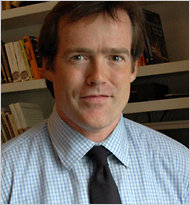 I spoke by phone with Moyers, who recalls the sense of initiative behind his first acquisition: “I felt like I was reaching out into the world and creating something.” He had been an assistant at Doubleday for four years before making a “huge leap” to Associate Editor at Scribner. Going after projects was difficult because as a new editor, he “didn’t know many agents and didn’t expect to get a first crack at many projects.”
I spoke by phone with Moyers, who recalls the sense of initiative behind his first acquisition: “I felt like I was reaching out into the world and creating something.” He had been an assistant at Doubleday for four years before making a “huge leap” to Associate Editor at Scribner. Going after projects was difficult because as a new editor, he “didn’t know many agents and didn’t expect to get a first crack at many projects.”
Sometime during this period, he read a “stunning piece of longform journalism” in the Wall Street Journal by Thomas E. Ricks about a Marine platoon’s boot camp on Parris Island, South Carolina. Moyers jokingly described how he went on to pester Ricks and his agent for the book rights to a longer, “almost anthropological study” about Marine culture, its indoctrination methods, and the occasional tensions with the values society the soldiers were tasked to defend.
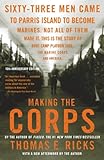 The pestering paid off, as he secured the floor in the auction, an anonymous baseline bid with the right to come back and beat any higher offers. There was another offer, which Moyers topped to secure Ricks’s Making the Corps, a success he says helped to “cement [his] status as an editor.” Moyers would go on to edit more books by Ricks, sell his books when he became a literary agent, and acquire his books yet again when he returned to editing.
The pestering paid off, as he secured the floor in the auction, an anonymous baseline bid with the right to come back and beat any higher offers. There was another offer, which Moyers topped to secure Ricks’s Making the Corps, a success he says helped to “cement [his] status as an editor.” Moyers would go on to edit more books by Ricks, sell his books when he became a literary agent, and acquire his books yet again when he returned to editing.
Over the years since that first buy and the “almost existential fear” of being a young editor — one might compare it to a kind of tweedy boot camp — Moyers says he gradually learned what can and cannot be controlled in publishing. Reflecting back on the period when he was trying to make a career, he wryly notes that “nobody necessarily cares about your success except you and your parents,” and that Ricks’s decision to go with a young editor was an “act of generosity and faith” that he has not forgotten: “We grow more protective as we grow conscious of whom we owe.”
Kathy Pories, Senior Editor, Algonquin Books
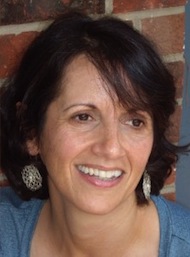 Moving from the rigorous standards of nonfiction reporting to tales that couldn’t be any taller, Kathy Pories describes in an email how she reeled in quite the catch with her first acquisition:
Moving from the rigorous standards of nonfiction reporting to tales that couldn’t be any taller, Kathy Pories describes in an email how she reeled in quite the catch with her first acquisition:
The first book I acquired as an editor was a book by a local writer. His agent was in New York, and the book was out with other editors. It had an experimental feel to it, a structure unlike most books I’d read so far…fable-like. It felt like the kind of novel that people would either “get,” or they wouldn’t, so it felt a little risky for it to be the first book I bought. Still, my Editorial Director, Shannon Ravenel, was firmly in agreement — there was something so exciting and original and moving about this father-son story — and so she gave me the go-ahead to make an offer.
That book was Big Fish by Daniel Wallace. I remember that I was so green that Shannon kept passing me post-its with messages about what I should say to the agent (which in retrospect, I’m sure he could detect in my halting delivery as I engaged in my first negotiation. I wish I had a recording of that conversation now.) And we had no idea how big that book would become, or that within weeks, film rights would be optioned — or that it would actually become a movie. Anyway, it was an auspicious start. Seventeen years later, I still think you have to have that feeling that something is risky; those are the books that are the most exciting to publish. But I’m a little better on the phone these days.
Timothy Bent, Executive Editor (Trade), Oxford University Press
 Timothy Bent remembers acquiring a vital, memorial work that has stayed with him over the course of a long career in commercial and academic trade publishing:
Timothy Bent remembers acquiring a vital, memorial work that has stayed with him over the course of a long career in commercial and academic trade publishing:
When I was at Arcade about twenty years ago I urged Dick Seaver, the publisher, to sign up a book whose manuscript he had given me, a newly hired assistant editor, to read. It was a essentially a “grief” book: a father’s biography of a daughter born with birth defects and who lived only a short time — barely over five months. It was a really painful story — operations, hope, more operations, loss. This was before I was a father myself and therefore before I could really understand all the dimensions of the grief, but the writing was so limpid, the thoughts and expression so unsentimental, the vision of this child so clear — what character and personality in a months-old child! — that I wanted badly to work on the book. I championed it, Dick acquired it for me, and I edited it.
The author is William Loizeaux, and the book is called Anna: A Daughter’s Life. It taught me to understand that every life, however foreshortened and unfulfilled, was worthy of a book, just as are those of Great Lives and Large Deeds; Anna inhabits one of those unvisited graves (as the narrator at the end of Middlemarch has it), whose lives we would never know or appreciate were it not for the written accounts by those who love and remember them. Her life counted. I gave myself to that book and became very close to the author and his family; when it was reviewed in the New York Times by Reeve Lindbergh, appreciatively, I remember feeling a sense of accomplishment that has never been matched since, though I’ve now acquired and edited many hundreds of titles, many on those whose remains inhabit highly visited tombs. How does a biography of Anna Loizeaux stand up to one of Bismarck? In my mind, it just does: that’s what a writer can do.
Alex Star, Senior Editor, Farrar Straus Giroux
 Alex Star’s first buy involved an essayist, Meghan Daum, who made her reputation partly on the strength of a comic, rueful, and rodent-populated essay about the perils of being an editorial assistant: “For the editorial assistant, every day is a new near-death experience. As if ‘going toward the light,’ we chase after what literature there is, trying, at least in the beginning, to discover the genius in the slush pile who’s going to elevate us from entry-level minion to up-and-comer with a brilliant eye.” Star writes:
Alex Star’s first buy involved an essayist, Meghan Daum, who made her reputation partly on the strength of a comic, rueful, and rodent-populated essay about the perils of being an editorial assistant: “For the editorial assistant, every day is a new near-death experience. As if ‘going toward the light,’ we chase after what literature there is, trying, at least in the beginning, to discover the genius in the slush pile who’s going to elevate us from entry-level minion to up-and-comer with a brilliant eye.” Star writes:
The first book I acquired, in the spring of 2012, was a collection of essays by Meghan Daum. This was doubly gratifying, since her first collection of essays, My Misspent Youth, was an important book for me back when I was trying earnestly to mis-spend my own youth, and because a new essay Daum had written, about a parent’s death, struck me as her best work yet. Daum’s new collection will appear this fall, and it covers mortality, children, animals, music, and growing older — an entire course on human nature, inside two covers.
Jenna Johnson, Senior Editor, Houghton Mifflin Harcourt
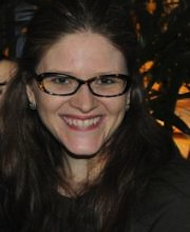 Jenna Johnson, who has been acquiring books for eleven years now, began with one about eight dramatic seconds. As she suspects is often the case with young editors, Johnson benefited from the “kindness of a senior colleague” for her first buy. During our phone call, she explained that inundated editors will sometimes encourage up-and-comers to pursue projects, which, however intriguing, they themselves might not have time to take on.
Jenna Johnson, who has been acquiring books for eleven years now, began with one about eight dramatic seconds. As she suspects is often the case with young editors, Johnson benefited from the “kindness of a senior colleague” for her first buy. During our phone call, she explained that inundated editors will sometimes encourage up-and-comers to pursue projects, which, however intriguing, they themselves might not have time to take on.
Thus was a book on rodeo culture passed along to Johnson by an editor for whom she had been reading manuscripts. Johnson’s history background and “demonstrated love for the American West” made her the perfect person to take the reins of W.K. Stratton’s Chasing the Rodeo, which offered a lively account of the rodeo and its literature, a discussion of the West’s place in the American imagination, and a portrait of the author’s own “rodeo bum” father.
 Johnson said that the first buy “signals a moment of traction,” a crucial step for a young editor “learning to negotiate the system and find a book that suits the house.” Though a project about rodeos was not an “obvious Harcourt book” at the time, the house had published works by Roger Kahn and Roger Angell, so there were some “points of contact” for a book about sports culture.
Johnson said that the first buy “signals a moment of traction,” a crucial step for a young editor “learning to negotiate the system and find a book that suits the house.” Though a project about rodeos was not an “obvious Harcourt book” at the time, the house had published works by Roger Kahn and Roger Angell, so there were some “points of contact” for a book about sports culture.
What came through most vividly in our conversation was the joy of working alongside the author to achieve “the right balance” of reportage, history, and memoir: the challenge in any piece of narrative nonfiction. From this first buy and from many subsequent acquisitions, Johnson has come to see that writers and editors often end up as each other’s “mentors” in steering a project home.
Jeremy M. Davies, Senior Editor, Dalkey Archive Press
 Finally, Jeremy M. Davies writes in about a thwarted first buy, which teaches him that a young editor must hone his taste as well as his strategic instincts to make his way in the publishing world. What follows is a two-part story of discovered manuscripts, intrigue, innocence lost, and a gleeful turn to (fictional) anarchy:
Finally, Jeremy M. Davies writes in about a thwarted first buy, which teaches him that a young editor must hone his taste as well as his strategic instincts to make his way in the publishing world. What follows is a two-part story of discovered manuscripts, intrigue, innocence lost, and a gleeful turn to (fictional) anarchy:
I had only been at Dalkey Archive for a couple of weeks. The first book I wanted to see signed on was an unsolicited submission by a translator of a deceased author who, at that point, had never, to my knowledge, been Englished. While I had minor reservations about the book — I wouldn’t say I’d put my head on the block for it, as I would have for Édouard Levé, or Lascano Tegui, or Gerald Murnane, to name three more recent Dalkey acquisitions behind which I’m proud to have been lurking — but I was certain it was right for Dalkey, and that the author was someone for whom Dalkey would be applauded for introducing to the Anglophone world.
Now, you have to understand that, then as now, it’s the Director who makes all final decisions about, well, everything. The process was semi-democratic, in that a book universally praised was far more likely to get the Director’s okay. Books to be rejected would either be dismissed out of hand or else assassinated by other, less obvious means.
I was nervous about making a strong positive recommendation so soon after arriving at the Press, but, to my surprise and relief, I received a fairly rapid and equally positive reply, and permission to contact the translator with the news that Dalkey did, indeed, want to publish his work.
At the next meeting, the book was axed on account of another staff member’s claiming that he didn’t, after all, “like the ending.” I suspected there was more to it than an aesthetic judgment, but what could I do? It was enough to kill the project, and I was instructed to reject the MS, even though it had already been accepted. The translator wasn’t too pleased with this apparent duplicity, and I wasn’t too thrilled to seem the culprit. But that’s showbiz, I guess: it was a good lesson.
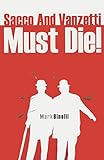 Another “excellent” press would acquire the book and translate several more by the same author, whose identity Davies will not reveal: “Here’s a hint: it ain’t Bolaño.” In the story’s denouement, our hero, wiser and schooled in the Machiavellian dealings of non-profit publishing, triumphs:
Another “excellent” press would acquire the book and translate several more by the same author, whose identity Davies will not reveal: “Here’s a hint: it ain’t Bolaño.” In the story’s denouement, our hero, wiser and schooled in the Machiavellian dealings of non-profit publishing, triumphs:
The first actual acquisition I handled differently. This was an original English-language MS that (also) came in on the slush pile, a few months later. The submission held my attention as being written by someone in control of his material (not often the case with slush). I was struck by its tone, ambition, and eccentricity, and its very skillful juggling of slapstick silliness with desperate bleakness. It also didn’t hurt that it played to my pathological cinephilia. Cutting to the chase, this was Mark Binelli’s wonderful Sacco and Vanzetti Must Die, which recasts the titular anarchists as vaudevillians who appear in such films as Ventriloquism and Its Discontents.
So, I saw that the book was “the real thing” (such clarity, in those days!), and I likewise saw that Mark was a contributing editor at Rolling Stone. (And if you haven’t read his nonfiction, you should: his most recent book is Detroit City Is the Place to Be: The Afterlife of an American Metropolis, and he recently published a great profile of Pope Francis.) Evidence that I wasn’t a complete idiot: when I brought the book up, I started with the Rolling Stone connection and only then went on to quality. This put things in the proper context: Sacco and Vanzetti was a project that had a chance at some real publicity, and thus sales, so its high quality as fiction became added momentum in overcoming editorial inertia, rather than the initial meek shove. There were no sneak attacks this time, and the book was published in 2006 to great reviews all over the place.
But, you know, like the man said, “Show me a movie with a happy ending, and I’ll show you a movie that ended ten minutes too early.”








